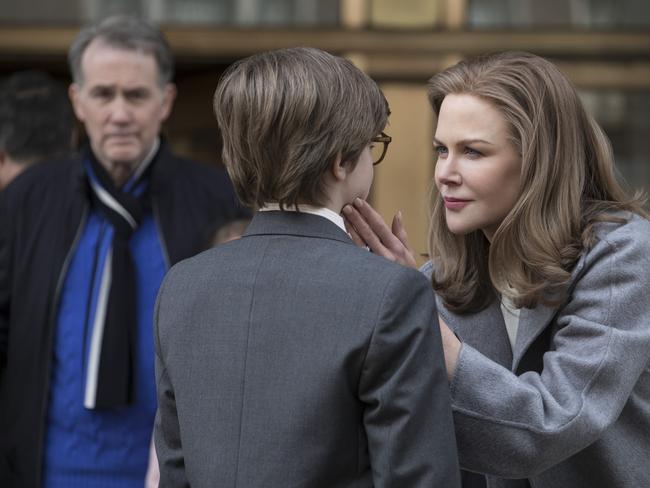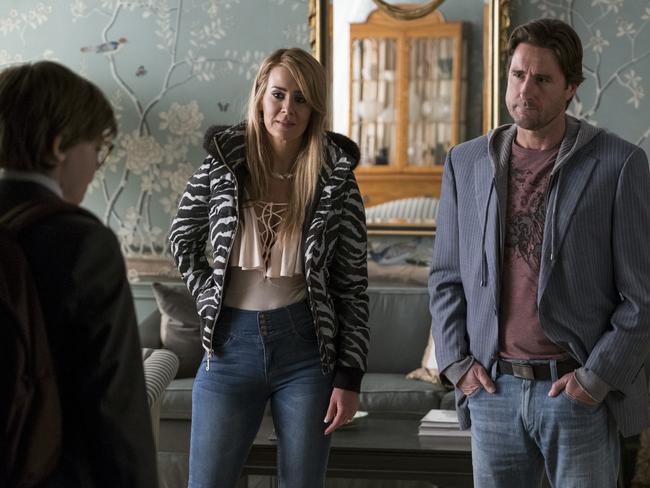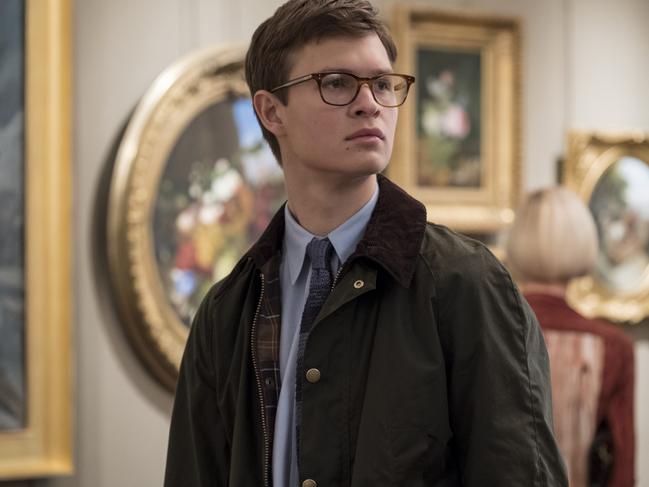Novel approach fails to fly for The Goldfinch
How do you condense a 780-page novel about grief, guilt and transgression into a coherent two-and-a-half movie? Not like this!
Entertainment
Don't miss out on the headlines from Entertainment. Followed categories will be added to My News.
- Charismatic Phoenix takes Joker to the heart of darkness
- Teens’ new scream queen does predecessors proud
THE GOLDFINCH
Two and a half stars
Director: John Crowley
Starring: Ansel Elgort, Oakes Fegley, Nicole Kidman
Rating: M
Running time: 149 minutes
Verdict: Clips the novel’s wings
How do you condense a 780-page novel about grief, guilt and transgression into a coherent two-and-a-half movie?
Not like this.
The film adaptation of Donna Tartt’s Pulitzer Prize-winning novel lacks the compulsive detail of its source material and the shifts between the different time frames and geographical locations feel forced and clunky.
The Goldfinch’s restructured narrative — here, the bombing of New York’s Metropolitan Museum of Art and its aftermath is experienced as a series of aftershocks — feels appropriately cinematic. But the conventional framing device doesn’t have the immediacy of novel, amplified by Tartt’s use of the first-person voice, and this does nothing to enhance Ansel Elgort’s performance as the grown-up Theo Decker.

Oakes Fegley fares a little better as the younger Theo, partly because he’s got more to work with; his actions — or reactions — are what set the chain of events in motion.
Miraculously, the young boy survives the catastrophic explosion with barely a scratch. But his mother never emerges from the rubble.
Since his father is missing in action, Theo is taken in by the family of one of his schoolmates.
Nicole Kidman’s wealthy matriarch dominates these scenes so completely, you’d be excused for thinking The Goldfinch was her story.
Adding emotional texture to Theo’s new life is an antique furniture restorer named Hobie (Jeffrey Wright) and the flame-haired girl (Aimee Lawrence) who was also at the gallery that day.

These developing relationships are curtailed by the unexpected reappearance of Theo’s good-for-nothing father (Luke Wilson) and his pill-popping new girlfriend (Sarah Paulson), who take the kid back with them to an unoccupied housing development on the edge of the Nevada desert.
The only redeeming feature in this barren, dysfunctional landscape is Boris (Finn Wolfhard), the rule-breaking Russian emigre who befriends him.
After another abrupt and violent change in his circumstances, Theo escapes back to New York, and the film leaps forward several years, setting us up for the climactic end sequence alluded to in the opening scenes.

Part coming-of-age drama, part crime thriller, The Goldfinch takes its name from the priceless painting Theo “rescues” from the bomb site in an impulsive act with irrevocable consequences.
There are enough plot twists and turns to keep audiences distracted, but director John Crowley’s follow-up to the Oscar-nominated Brooklyn fails to animate its source material.
And for a film that clocks in at 149 minutes, many of the key moments feel oddly rushed.
Now showing
